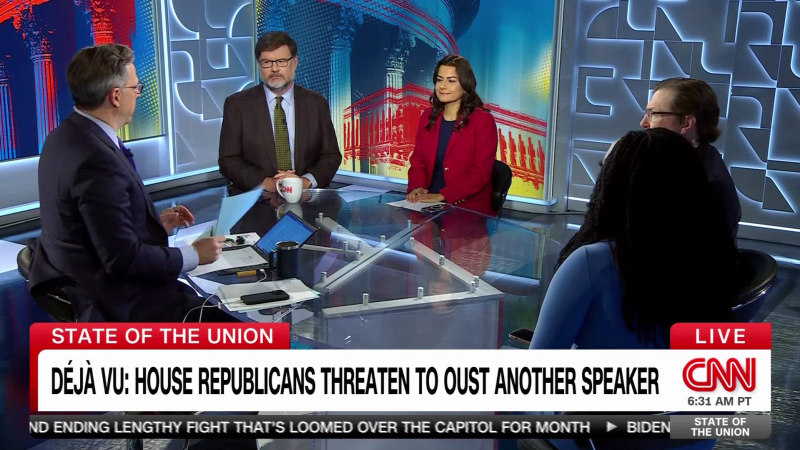In recent years, there has been a noticeable trend of House lawmakers deciding to retire or not seek reelection, a phenomenon that some describe as “Crazy Town stuff.” This trend has been attributed to the chaotic and divisive political landscape in Washington, particularly within the Republican party. The departure of numerous House lawmakers reflects the challenges and conflicts faced by politicians on both sides of the aisle, including the mounting legal problems of former President Donald Trump.
One of the key factors contributing to the exodus of House lawmakers is the instability and chaos within the Republican party. The GOP has been embroiled in internal conflicts and power struggles, with some members aligning themselves with Trump and others distancing themselves from the former president. This polarization has created a challenging environment for lawmakers, prompting some to opt for retirement rather than face the uncertainty and turmoil within their own party. The deep divisions within the GOP have also led to a lack of cohesive leadership and a sense of disarray among House Republicans.
Another factor driving House lawmakers to retire or leave office is the mounting legal problems facing Trump. The former president’s legal challenges have taken center stage in recent months, including investigations into his business dealings, tax returns, and potential criminal conduct. These legal troubles have cast a shadow over the Republican party and have further fueled the chaos and uncertainty in Washington. Lawmakers may be wary of being associated with Trump and his legal woes, leading them to distance themselves from the former president and the GOP as a whole.
The departure of House lawmakers also reflects the broader challenges facing politicians in today’s political climate. The toxic partisanship and divisive rhetoric that characterize Washington have made it increasingly difficult for lawmakers to navigate their roles effectively. The constant barrage of political scandals, controversies, and personal attacks has taken a toll on politicians, contributing to a sense of disillusionment and fatigue among many in Congress. The decision to retire or not seek reelection may be a way for lawmakers to escape the toxic environment and seek a respite from the intense pressures of political life.
Despite the challenges and chaos in Washington, some lawmakers are determined to stay and continue serving in Congress. Hispanic Caucus Chairwoman Rep. Nanette Barragan, in particular, remains committed to her role and sees it as a way to advocate for her constituents and make a positive impact on public policy. Barragan’s dedication to public service reflects a sense of duty and responsibility that motivates some lawmakers to persevere in the face of adversity and uncertainty. While the political landscape may be challenging, there are still those who believe in the importance of public service and are willing to endure the chaos to make a difference.
In conclusion, the exodus of House lawmakers reflects the tumultuous and challenging political climate in Washington, characterized by chaos, division, and uncertainty. The instability within the Republican party, exacerbated by Trump’s legal problems, has created a toxic environment for politicians, prompting some to retire or not seek reelection. Despite the challenges, there are still lawmakers who remain committed to their roles and see them as opportunities to make a positive impact on public policy. The decision to stay in Congress or leave reflects the personal and political considerations that lawmakers must weigh in navigating the complexities of today’s political landscape.


